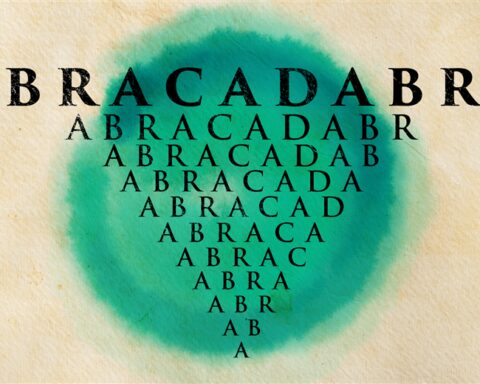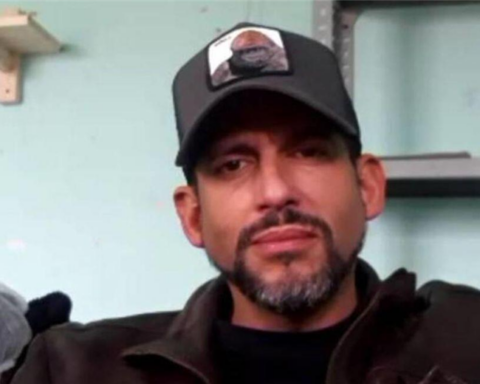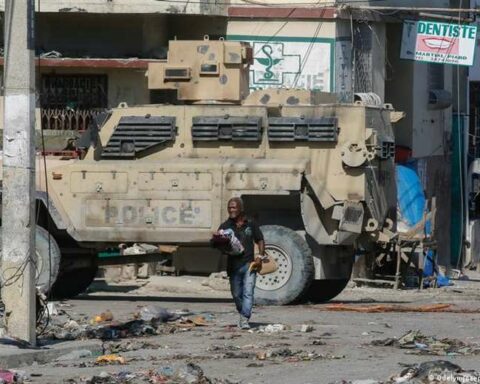September 1, 2022, 4:00 AM
September 1, 2022, 4:00 AM
September has begun and Santa Cruz waves its flags in different directions. On the one hand, the Green, White and Green will fly in the main public spaces to celebrate 212 years of the department’s libertarian deed. On the other hand, the badge will be moved by representatives of the Interinstitutional Commission for the Promotion of the Census so that the Government carries out the national registration in 2023 and not in 2024, as established by Supreme Decree 4760, promulgated by President Luis Arce.
The marked differences between the Government and the region cause an increase in political tension. Just yesterday the Minister of Planning, Sergio Cusicanqui, ratified that the census will be applied in 2024 and disqualified the proposal presented by technicians from the Gabriel René Moreno Autonomous University to shorten the times that allow it to be done in 2023.
The answer will be known tomorrow, when the third departmental summit convened by the Interinstitutional Commission is held, in which pressure measures will be defined so that the Executive debates the technical possibility of modifying the census date. During the month of July there were two stoppages in the department for the census.
In the midst of the tension, Governor Luis Fernando Camacho went yesterday to testify at the Prosecutor’s Office accused by Deputy Rolando Cuéllar, of MAS, of allegedly acquiring a fire truck in an allegedly irregular manner.
The climate of tension was agitated on Monday, when Camacho announced that he would not invite the national authorities to the acts for the departmental anniversary. The next day he received notification from the Prosecutor’s Office.
For the lawyer and university professor Daniel Valverde, there have always been tensions this month. He mentioned that since the 1990s, in September there was always some demand or agenda that was raised from Santa Cruz at the central level, mainly by institutions, such as the Civic Committee and the Parliamentary Brigade, and that they were in tension with the national government.
According to Valverde, some years there were peaks, such as between 2003 and 2004, when the debate for autonomy was installed, and in 2008-2009, with the taking over of institutions. He believes that from then on a tendency towards political effervescence was marked.
Valverde concluded that with the MAS governments these tensions have been intensifying because it is no longer just about asking for works, budget or items, but rather that issues related to cultural and ideological differences are mixed.
He said that when the conflict originates from symbolic issues, from cultural values, it is more difficult to resolve. But he considers that this is more linked to a substantive issue. “Santa Cruz is the political, demographic, and economic epicenter, but it is not the center where political decisions are made. The State is still anchored in an Andean vision, culturally, and that generates friction”, he asserted.
For the lawyer, this triggered what happened last year with the wiphala, and predicted that it will continue to happen as long as Santa Cruz does not raise a project on a national scale that embraces the entire country.
For his part, the social researcher Rolando Schrupp believes that during September the “politickers on duty” try to take advantage of collective emotions, without being sufficiently aware of the Santa Cruz regional issue. He says that this is the month when it is most clearly evident that Bolivia is the history of the struggle of regions, not of social classes.
Taking advantage of this pending historical conflict, the stateless nation is facing the colonial state in an asymmetrical symbolic cultural battle, he said.
“The first is full of emotions and, the second, loaded with perverse intelligence. It is from that perverse intelligence that the limited cognitive capacity of apprentice warlords is taken advantage of as simple subjects of validation and emotional blackmail for the advancement of colonial domination,” Schrupp asserted.
In his opinion, today the scenario is more complex because in the regional issue, Camacho is the perfect subject to assume a role in the script of the theory of hate, with which the project of continental domination occupied Bolivia. “Camacho is the perfect character for a Santa Cruz to be the one to kill the Santa Cruz soul and annul the Santa Cruz project, the only effective contrast to the thesis of state servitude underway in the country,” he alluded.
Daniel Valverde said that in politics you have to be strategic, not reactive or erratic. In that sense, he considers that Camacho’s attitude further isolates Santa Cruz.
“I have never seen a Santa Cruz more alone than now; nobody wants to be in a photo, despite the fact that the fight for autonomy and for the governors has been from Santa Cruz, but unfortunately there is no leadership on a national scale, ”she said.
The journalist Carlos Valverde recalls that there were famous speeches in the different versions of the Exhibition Fair, an event used to say things to the Government of the day.
He believes that the acts and events of September are forums where you have the opportunity to say things, and that last year’s event with the wiphala is just an anecdote. “Why miss out on this opportunity?” she questioned.
After the declarations of Camacho, who refused to invite the national authorities to the events for September 24, both the president of the Santa Cruz Exhibition Fair (Fexpocruz), Óscar Mario Justiniano, and the mayor of Santa Cruz, Jhonny Fernández They confirmed that they will invite the representatives of the central level to the celebrations.
“These few who thought they owned Santa Cruz; that’s over. I open the doors to everyone; when I became mayor I said that I would work with all the authorities, I am respectful”, the mayor said yesterday, during the delivery of the start of the Plan 3,000 viaduct, considered one of the works for the beginning of the month of Santa Cruz.
The mayor of Santa Cruz invited the national authorities
He took advantage of the event to also list the works worked on in conjunction with the central government, a second level hospital for Plan 3,000 and Los Lotes, a nuclear hospital in the Pampa de la Isla area and a new wholesale market.
The deputy of Cree Andrés Romero affirmed that Mayor Jhonny Fernández once again betrays Santa Cruz by announcing that he will do his own act and invite the MAS authorities.
Fexpocruz also distanced itself from the Santa Cruz Governorate by inviting the national government to the inauguration of the fair event. The organizers indicated that, by protocol, the three levels of government are invited. However, they made it clear that, as a productive institution, they agree with carrying out the census in 2023, as proposed by the Santa Cruz institutions.
Yesterday, the Minister of Development Planning, Sergio Cusicanqui, ruled out any possibility of modifying the date of the population and housing census, contrary to the proposals of La Paz and Santa Cruz.
He recalled that, from August 8 to 26, the government made a national tour of the capital cities, to explain the scope of the new government proposal, which is to carry out the national survey in 2024.
He announced that now the central government will visit the autonomous regions, the original indigenous autonomies and the organizations of the Unity Pact, to transmit data and that they can support in some tasks.
Regarding the third summit for the census, to be held tomorrow at 3:00 p.m. in the Olympic Village, Vicente Cuéllar, rector of the Uagrm and head of the Interinstitutional Census Committee, said that nothing is ruled out, and that The summit can lead to a town hall meeting, a march, strikes or any other pressure measure determined by the summit.
“They would be breaching what they signed with us. They promised to consider the technical proposal of the technical team. They cannot continue to confuse the Bolivian people, when technically it has been shown that the census can be carried out in 2023”, he said.








